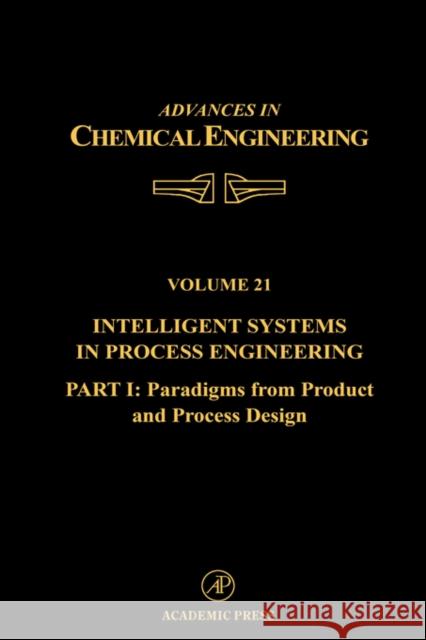Intelligent Systems in Process Engineering, Part I: Paradigms from Product and Process Design: Volume 21 » książka
Intelligent Systems in Process Engineering, Part I: Paradigms from Product and Process Design: Volume 21
ISBN-13: 9780120085217 / Angielski / Twarda / 1995 / 311 str.
Intelligent Systems in Process Engineering, Part I: Paradigms from Product and Process Design: Volume 21
ISBN-13: 9780120085217 / Angielski / Twarda / 1995 / 311 str.
(netto: 429,84 VAT: 5%)
Najniższa cena z 30 dni: 423,45 zł
ok. 13-18 dni roboczych.
Darmowa dostawa!
Volumes 21 and 22 of Advances in Chemical Engineering contain ten prototypical paradigms which integrate ideas and methodologies from artificial intelligence with those from operations research, estimation andcontrol theory, and statistics. Each paradigm has been constructed around an engineering problem, e.g. product design, process design, process operations monitoring, planning, scheduling, or control. Along with the engineering problem, each paradigm advances a specific methodological theme from AI, such as: modeling languages; automation in design; symbolic and quantitative reasoning; inductive and deductive reasoning; searching spaces of discrete solutions; non-monotonic reasoning; analogical learning;empirical learning through neural networks; reasoning in time; and logic in numerical computing. Together the ten paradigms of the two volumes indicate how computers can expand the scope, type, and amount of knowledge that can be articulated and used in solving a broad range of engineering problems.
- Sets the foundations for the development of computer-aided tools for solving a number of distinct engineering problems
- Exposes the reader to a variety of AI techniques in automatic modeling, searching, reasoning, and learning
- The product of ten-years experience in integrating AI into process engineering
- Offers expanded and realistic formulations of real-world problems











